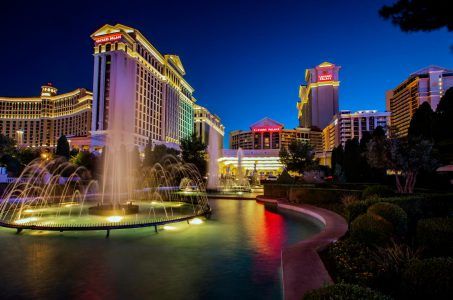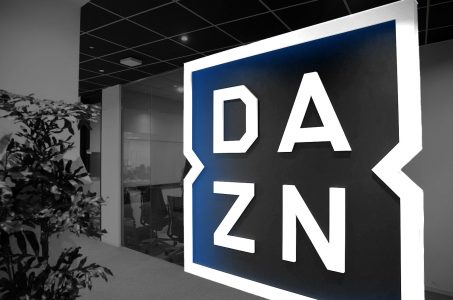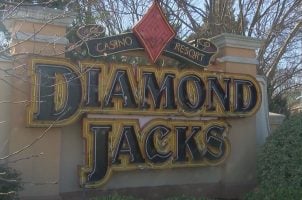Las Vegas Convention and Visitors Authority to Buy Monorail for $24M
Posted on: September 2, 2020, 02:19h.
Last updated on: September 2, 2020, 03:30h.
The Las Vegas Convention and Visitors Authority (LVCVA) Board of Directors has signed off on the tourism agency spending more than $24 million to acquire the Las Vegas Monorail — a transportation system that continues to pile up debt.

The board voted 12-1 in favor of approving $24.26 million to buy the Las Vegas Monorail Company, the country’s lone remaining privately owned public transportation system. That distinction will soon cease, as the LVCVA is a public agency that is primarily funded through hotel occupancy stays in Clark County.
The seven-stop, 3.9-mile monorail hasn’t been running since the mid-March shutdown of Las Vegas casinos. The Monorail Company is in debt and losing money even when operational.
The attractive component of the purchase is that the Monorail Company holds a noncompete clause on a competitor building a transportation system on the east side of the Strip. The LVCVA recently spent $52.5 million to contract Elon Musk’s Boring Company to build two underground tunnels that connect its expanding Convention Center.
The LVCVA is tasked with keeping Las Vegas busy with conventions and tourists. That is currently no easy mission, as the pandemic rages on. Gross gaming revenue in July was down 39 percent on the Strip to $330 million.
Mayor Opposed
Las Vegas Mayor Carolyn Goodman, one of the LVCVA board members, was the dissenting vote. She says a pandemic isn’t the time to be spending money, especially on a monorail system manufactured by a company that is no longer in business. No companies currently build the train cars that ride on the rails, and experts say the system could need to be dismantled within fewer than 10 years.
We have $1.8 billion of debt, no conventions booked, no room tax income, and we have over 335,000 unemployed people, some close to being homeless,” Goodman stated during the remote conference.
“This [monorail] was originally supposed to go from the airport to the Strip, then downtown. It should be a private entity and not the LVCVA,” the mayor added.
LVCVA CEO Steve Hill said there are no plans to build new monorail stations or extend the system. But acquiring it provides options, including extending the underground Boring network, or repurposing the monorail with new vehicles. The latter, he says, could cost $200 million.
“We have a different mission than someone in the private sector who would invest in the monorail in order to make a profit,” Hill explained. “There’s a real cost to this community for the congestion that’s out there.
“This system, when we’re not in a pandemic, would be responsible for carrying five million show attendees and tourists [annually]. To not have the monorail run for the next eight or 10 years, that would be bad for the city. With us owning it, it provides a transition,” the CEO added.
Bankruptcy First
The LVCVA bid, which is supported by the Las Vegas Monorail Company, will begin with the transportation company filing for Chapter 11 bankruptcy. Once initiated, the LVCVA will join the Monorail Company in what’s called a “pre-packaged bankruptcy.”
The tourism authority, if approved in bankruptcy court, will pay off the monorail’s $20.5 million in liabilities to creditors, and take ownership of the rail system.
Hill says large convention organizers told him the monorail is a valued component in holding events on the Strip, as it allows attendees to conveniently move about the area.
“It’s the right thing to do at the right time,” said Commissioner Larry Brown. He added that if a private operator saw the monorail as an attractive investment, an offer would have come forward.
Related News Articles
DAZN Out, Discovery In, as BT Sport Heads in a Different Direction
DiamondJacks Bossier City Could Be for Sale
Most Popular
Mirage Las Vegas Demolition to Start Next Week, Atrium a Goner
Where All the Mirage Relics Will Go
Most Commented
-
Bally’s Facing Five Months of Daily Demolition for Chicago Casino
— June 18, 2024 — 12 Comments -
Chicago Pension Mess Highlights Need for Bally’s Casino
— July 2, 2024 — 5 Comments
















Last Comment ( 1 )
wasting more of the precious resource, money, this thing is like the do-do, its a loser, always will be